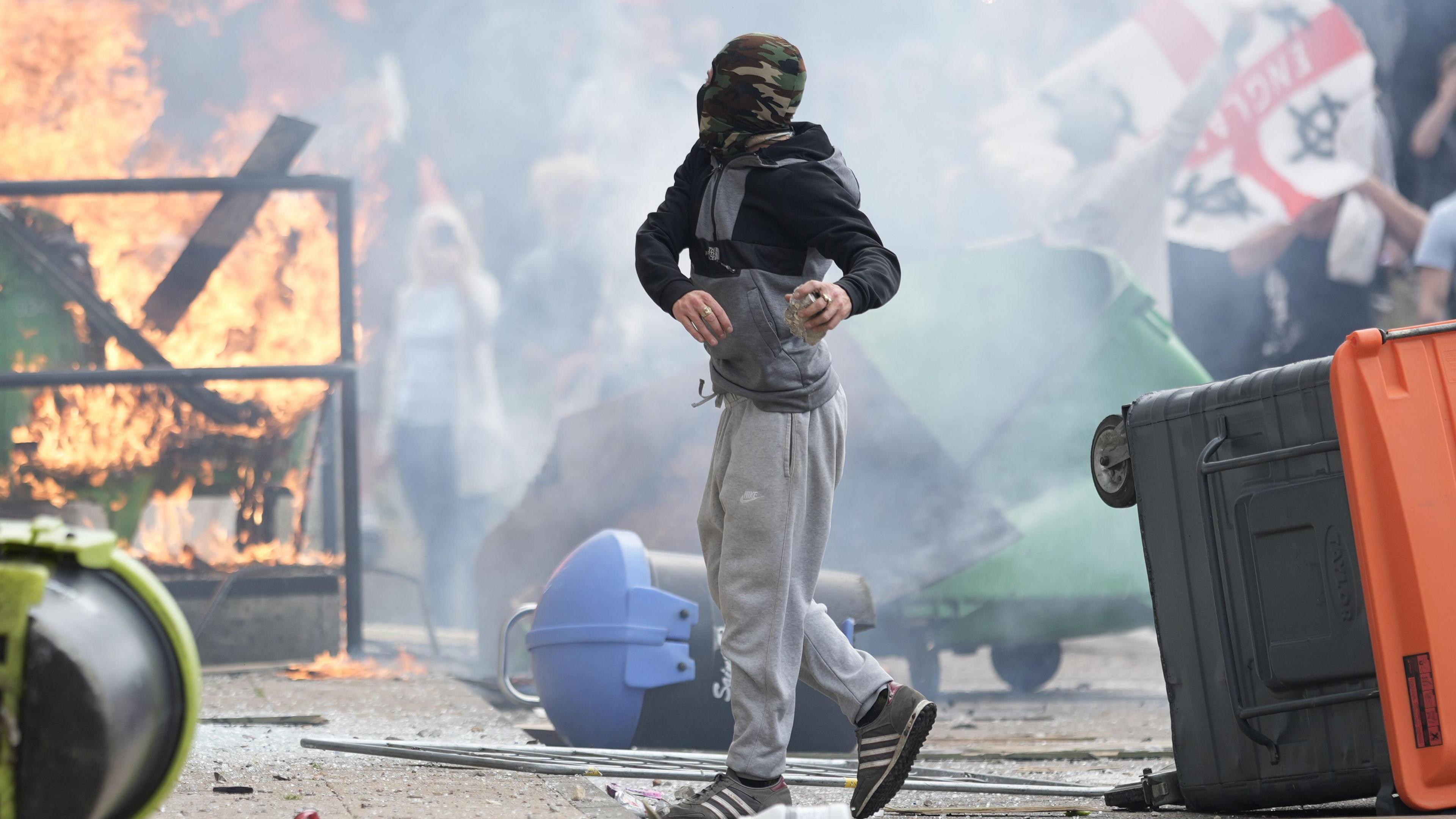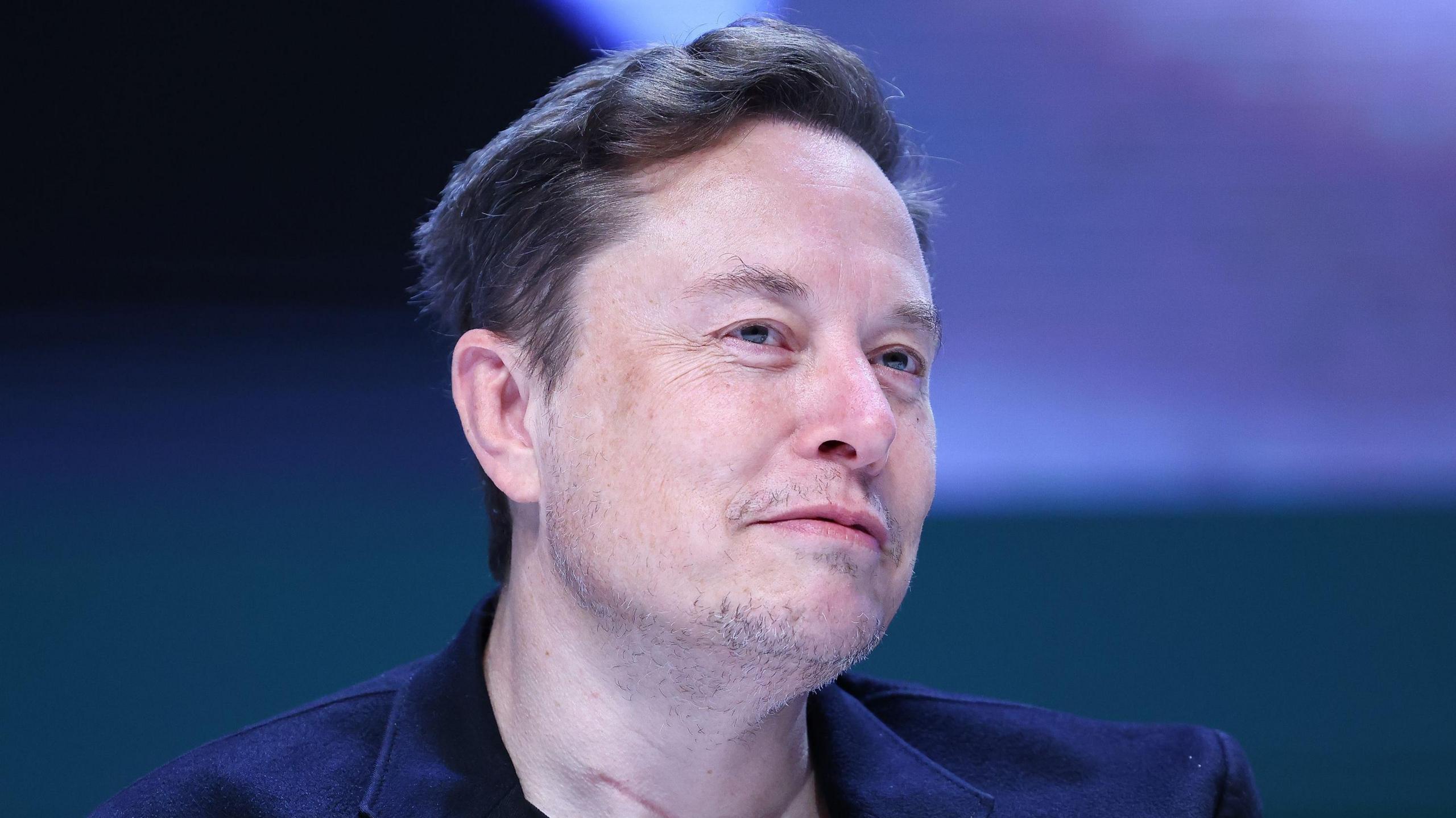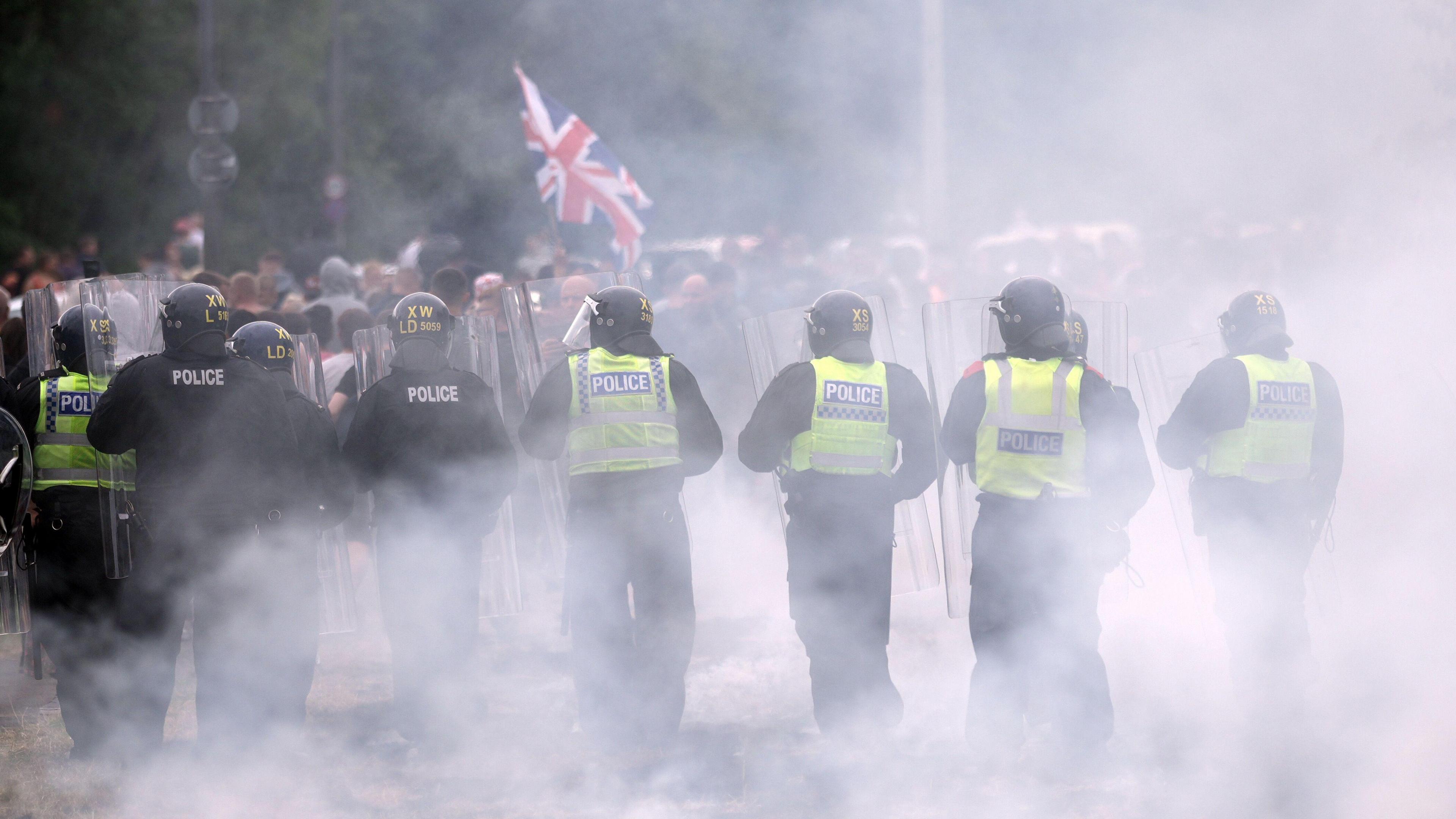A week of unrest - and a week of silence from big tech

Rotherham was the scene of some of the riots in England this week
- Published
For days, similar scenes have played out across England and parts of Northern Ireland - unrest, communities in fear, a huge police presence, with the flames being fanned by social media.
For days, journalists at BBC News have been contacting big tech companies, trying to find out what they are doing about it.
Whatever it is, they don't want to talk about it - the messaging app Telegram has been the only firm to issue an on-the-record statement.
It is hoped the tide has started to turn on the streets. But if they hoped that by keeping quiet they would avoid further scrutiny, the tech firms may well be wrong.
"I think it is horrendous they are not taking more ownership of what is happening", says Baroness Martha Lane Fox, one of the leading lights in the UK tech scene.
She knows big tech from the inside, having sat on the board of Twitter, as it was then called.
"Generally, they don’t like getting involved in politics - it doesn’t serve them well", she told the BBC.
Given the UK is a relatively small market, in global terms, she's "not surprised" by the silence - but says it should not deter the government from acting.
"The lack of accountability and serious regulation that is taking this on is something I think that should alarm all of us", she says.
What have the tech companies said so far?
Very little.
Meta - the company behind Facebook, Instagram and WhatsApp - has made no comment at all. TikTok, Snapchat and the messaging app Signal have also remained silent.
A well-placed source at Snapchat told BBC News the company remained in close contact with the regulator, Ofcom, and the UK government.
Telegram, meanwhile, was in the news after a list purporting to contain the names and address of immigration lawyers was spread online after starting life on the messaging app. The Law Society of England and Wales said it treated the list as a "very credible threat" to its members.
Telegram did not comment specifically on the list, but did tell the BBC that its moderators were "actively monitoring the situation and are removing channels and posts containing calls to violence".
Calls to violence were explicitly forbidden by the messaging platform's terms of service, it said.
And then there is X.
Elon Musk and a war of words with the Prime Minister

X owner Elon Musk was criticised for comments he made about the riots.
X, formerly Twitter, has not responded to any of our requests for comment.
In relation to the riots, there have been false claims, hate and conspiracy theories on the platform.
When Elon Musk bought it in 2022, he reduced its content moderation. A year later, far-right activist Tommy Robinson, real name Stephen Yaxley-Lennon, was reinstated to X after a five-year ban.
Last weekend, Robinson was posting inflammatory messages to his followers on X while relaxing in Cyprus.
X may have been silent this week, but its owner has not.
While commenting about the riots, Mr Musk tweeted “civil war is inevitable” - a post condemned by the spokesperson of the prime minister.
Mr Musk then posted "why aren’t all communities being protected in Britain?”, and #TwoTierKeir – a hashtag used over accusations of ‘two-tier policing’.
Mr Musk also deleted an image he had shared, which promoted a conspiracy theory about the UK building "detainment camps" on the Falkland Islands for rioters.
Why have tech companies kept quiet?

Several police officers have been injured in the riots.
"I think that tech companies are often hesitant to wade into politically charged situations", Matt Navarra, a social media expert, told BBC News.
"I think they fear alienating portions of their user base or becoming entangled in regulatory battles."
He said it is a "strategic calculation".
"By remaining silent, they hope the public attention will shift elsewhere, and they can avoid direct responsibility," he added.
The companies are, he says, prioritising their bottom line over "public safety and social responsibility".
Adam Leon Smith, Fellow of BCS, The Chartered Institute for IT said the silence was "incredibly disrespectful" to the public.
Media analyst Hanna Kahlert at Midia Research suggested they did not want to say things in public they could for fear of being held to those comments at a later date.
"They are probably going to be very cautious about how they comment on it, because that's going to define their strategy moving forward - what they are able to do, what their algorithms promote, which for them are activities that brings in ad revenue."
What could happen next?
More powers are coming the regulator's way via the Online Safety Act, due to come into force early next year.
Ofcom published an open letter to platforms saying they should not wait until then before taking action.
But some - including the mayor of London, Sadiq Khan - are already questioning whether that is enough.
The prime minister said on Friday that "we're going to have to look more broadly at social media after this disorder".
Prof Lorna Woods, a professor of internet law at the University of Essex - who helped shape the legislation - told BBC News: "If the Act were fully in force, it wouldn't catch all the content. So while organising a riot would be caught, some of the dog whistling tactics and disinformation would not be."
According to a poll by YouGov this week, two thirds of the British public want social media firms to be held more to account.
Big tech, it seems, has nothing to say. But they could find that others are taking them into a very different future in the UK.